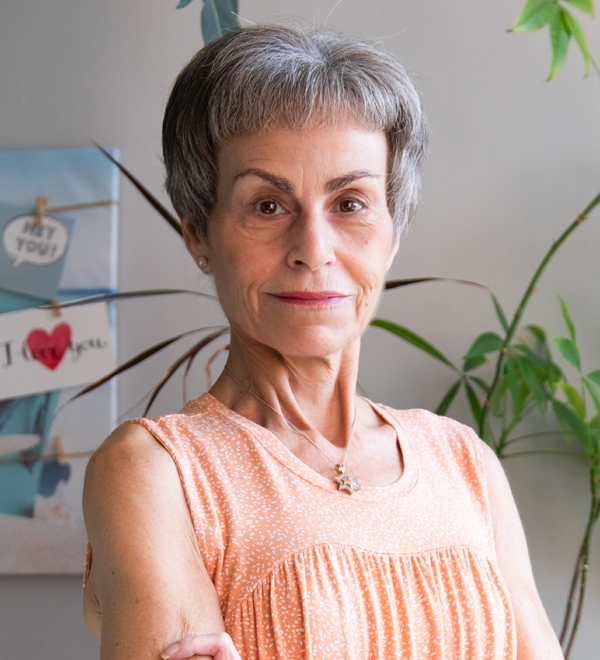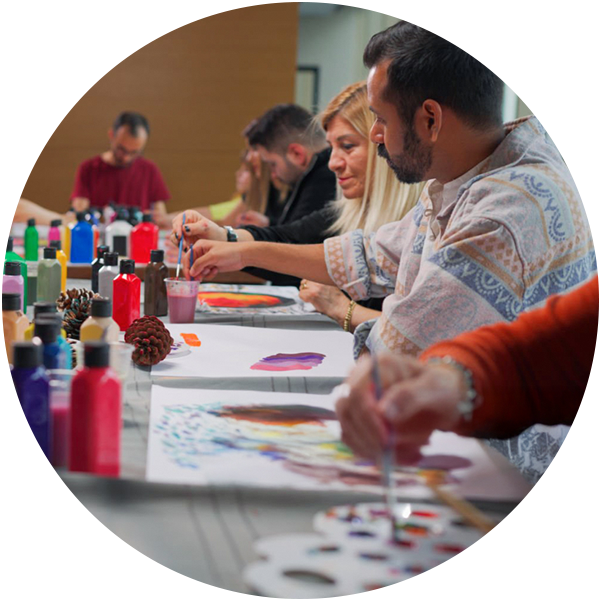Mental health can affect all areas of a person’s life — from employment to housing to relationships and more. So, we’re working tirelessly to increase access to support and coordination of services, reduce social isolation, and improve overall well-being for people facing mental health challenges. Any way we can.
THE CHALLENGE
Despite increasing and increased awareness of mental health struggles, many are still suffering in silence due to stigma, long waitlists, high costs of treatment and services and other barriers. While anyone can experience mental health challenges, some are more likely to be vulnerable, including people experiencing poverty, young people, and people involved with the criminal justice system. Post-pandemic, things are even more dire, with Canadian mental health being three times worse than before the pandemic. Which is why we must use every tool in our toolbox to break down the barriers that impede access to mental health services and pave the way for a GTA where people can access the essential resources they need when they need it most.

736,000 people
in Toronto, Peel and York combined reported having fair or poor mental health

1 in 3
2SLGBTQ+ homeless youth have attempted suicide since the pandemic began
BUILDING A FOUNDATION TO SUPPORT WELL-BEING
Through our network of community agencies, we support 76 mental health programs. We’re steadfast in our funding, which helps provide mental health services like therapy, intervene during crises, champion harm reduction, reduce social isolation and more. We’re also supporting the essential spaces where people can go for help, like our Community Hubs, which offer counselling and social connections. We collaborate with partners to address the interconnected issues people are facing — including having a seat at the table at the Wellesley Institute’s Wellbeing Toronto Table to focus on neighbourhoods disproportionately impacted by poverty, with limited access to services and where residents face significant challenges with mental health and substance dependency. No one should live a life without hope, so we’re digging deep into research, advocacy and policy, while working relentlessly on the ground to help those in crisis.


Randee, program participant and peer supporter at Krasman Centre (a United Way-supported agency)The darkness that surrounds me is not so dark anymore and the light at the end of the tunnel gets brighter and brighter, and I can see it plain as day. With that light, more things become possible. I can take hold of my life. I can start believing in the possibilities.
BUILDING A GTA FOR ALL
Building community takes community. Together, we have helped:

46,070
individuals gain tools and resources to help manage challenges with mental health and/or addiction

22,643
individuals connect to peer supports or networks
Stable and lasting mental health is the basis for a good life — one that includes adequate employment, housing, and relationships. Together, we can expand access to mental health support for everyone in the GTA to enhance the overall well-being of individuals facing mental health challenges. Any way we can.
Learn more
May 05, 2025
“The support gives us a second chance at life”
A United Way-supported women’s program helped Piera heal from emotional abuse and support others on their journey.
May 02, 2025
Connecting people in crisis to the support they need
Akeel was in crisis. United Way helped him find the mental health supports, stability and hope he needed to thrive — any way we can.
April 30, 2025
Helping a father find housing and a healthy future
After receiving a cancer diagnosis, Boafo grappled with the news alone. Then, he found a United Way-supported agency that connected him to community, housing and the wraparound services he needed to thrive.